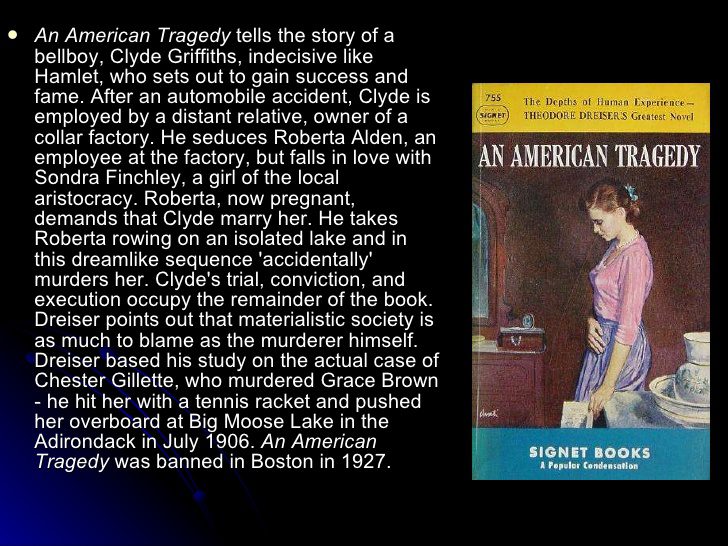Dreiser, Theodore: An American Tragedy

I’d been meaning to reread Dreiser’s An American Tragedy for years and finally got around to it. Considering the size of the volume (800 pages), it felt like the start of a long-term love-affair. You may think of it as the American Crime & Punishment since it deals with a murder and its repercussions, but its conclusion is as unsentimental as C&P’s is not. C&P’s prostitute with a heart of gold has all the credibility of Doris Day playing Mata Hari, but Dostoevski may be forgiven his lapse considering he pioneered the genre of the antihero.
Tragedy was published the same year as Gatsby and portrays the same theme (man born into poverty criminalizes himself climbing the ladder of success to gain the hand of the golden girl, only to lose her and himself in the process)—but while Gatsby is more lyrical, Tragedy is more profound. Edith Wharton was on the money when she said Gatsby was well-written, but wished she might have learned more about how Gatsby came by his wealth. We know he was a bootlegger, we know he knew the man who fixed the World Series, we know he might have witnessed a murder, but had we seen him in any of these situations we might not have given him a free pass.
Wharton would have no such problem with Tragedy. The prose is functional, the style nonexistent, but the pace is relentless. There is occasionally too much detail, occasionally repetition, but that was par for the course of that naturalist age. It’s a sad sorry sordid story, we see how the sausage is made, but Dreiser gets under the skin of his protagonist as Fitzgerald never manages with Gatsby, in large part because Dreiser shows us the underbelly and shining brow of his protagonist and Fitzgerald only Gatsby’s shining brow.